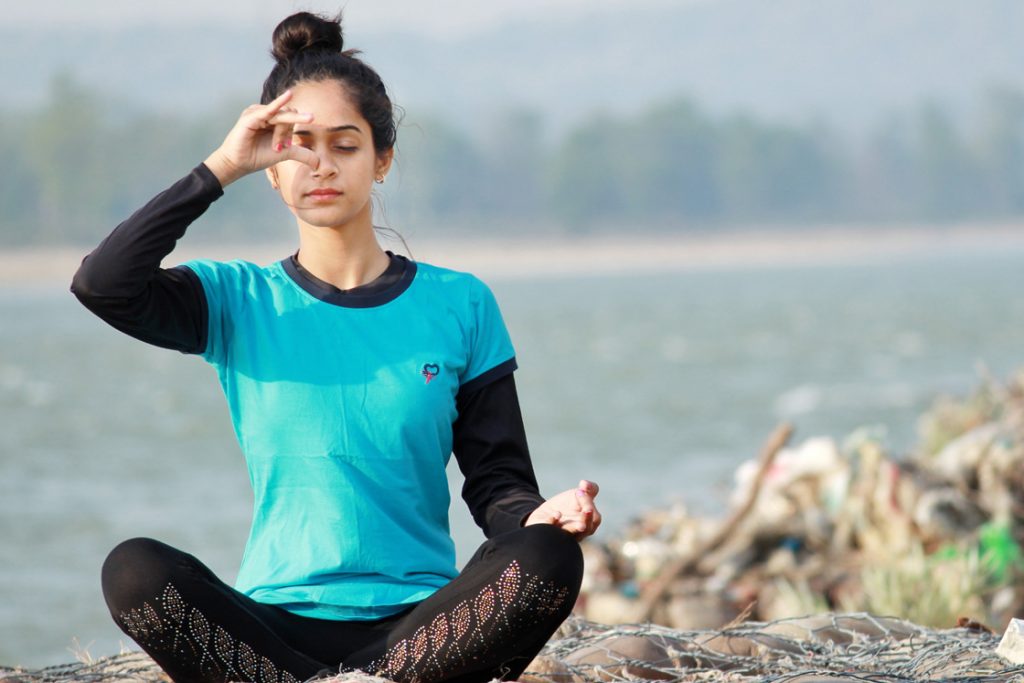
What’s Pranayama?
Pranayama is likely one of the important parts of yoga which incorporates numerous respiratory strategies.
In pranayama follow, we inhale, exhale and maintain our breath in numerous types and lengths purposely. However wait, that’s not all…
There may be the appropriate method of inhaling yoga: one should follow syncing bodily postures (or asanas) with breath actions. Figuring out when to inhale and when to exhale is crucial to reap pranayama yoga advantages.
Pranayama can reliably produce advantages for the physique and mind. It brings readability of thoughts, will increase lung capability, reduces stress and anxiousness, and strengthens willpower and interior and outer well being. The goal of pranayama is to extend the oxygen consumption of the physique. It strengthens the connection between physique and thoughts which enhance bodily, psychological and emotional well-being.
There are numerous varieties of pranayama which comprise each deep and quick respiratory workout routines. Whereas doing deep respiratory, coronary heart charge slows down which in flip calms the thoughts. Whereas quick respiratory detoxifies the physique and revitalized cells.
Some widespread pranayama varieties and their advantages are as follows:
- Nadi Shodhan or alternate nostril respiratory prompts the parasympathetic nervous system and balances the left and proper hemispheres.
- Kapalbhati or cranium shining breath will increase the lung capability and detoxifies the physique.
- Bhastrika or bellows respiratory will increase gastric hearth, which in flip, improves urge for food and digestion.
- Sama Vritti or sq. respiratory decelerate the center charge, improve oxygen to the mind, and cut back anxiousness.
Defining our Phrases
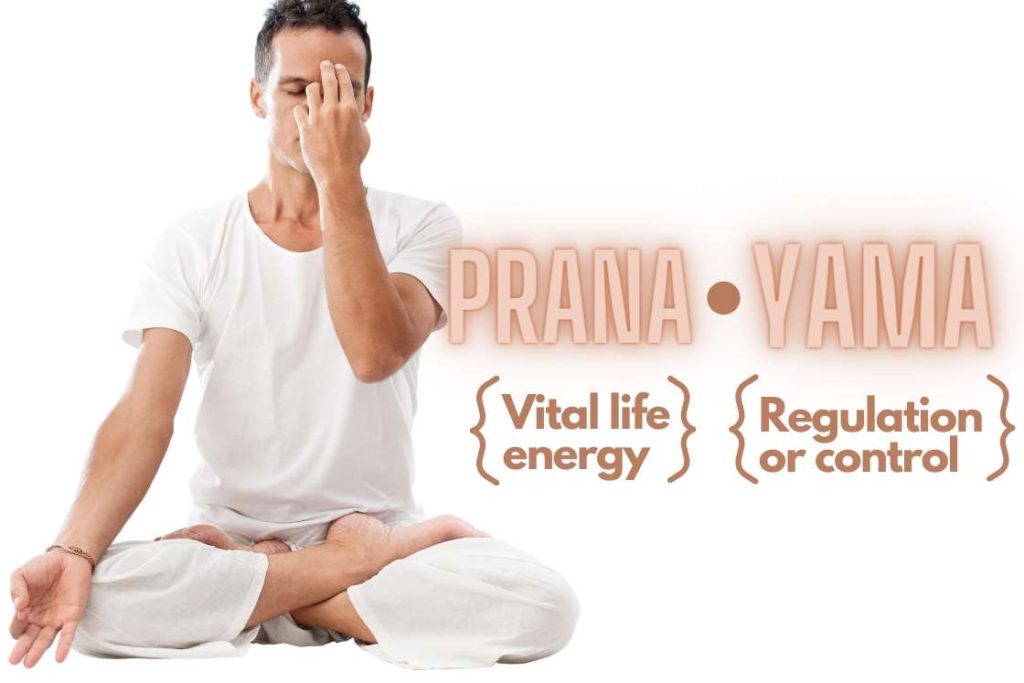
The time period “Pranayama” includes two frequent Sanskrit phrases of yoga “Prana” and “Ayama”. What’s Prana? Prana is the life driving drive behind all residing beings, current in people within the type of Vayu or winds. It regulates all bodily features, for instance, the breath, the provision of oxygen, digestion, elimination and way more. And “Ayama” means to manage or develop.
The 5 Prana Vayus and their features we goal to control via pranayama are as follows:
- Prana – Answerable for inspiration and swallowing meals
- Apana – Answerable for elimination, outward motion
- Samana – Answerable for assimilation
- Vyana – Answerable for metabolizing, speech, bodily progress
- Udana – Answerable for circulation
When a newbie is taught inhaling a pranayama preparation session, it’s emphasised to control:
- Puraka – inhalation, usually completed at starting via the each or single nostrils
- Kumbhaka – retention via holding the breath inside and outside the physique.
- Rechaka – exhalation will be completed via the mouth and nostril
Advantages of Pranayama (Yoga Respiration)
Pranayama is extra than simply managed respiratory; it’s a therapeutic follow backed by science. From bettering lung well being in bronchial asthma and post-TB sufferers to enhancing mind operate, stress response, and digestion, pranayama prompts the physique’s pure therapeutic methods. Under, we’ve outlined its most evidence-based advantages, supported by scientific analysis and yogic knowledge.
1. Will increase lung capability
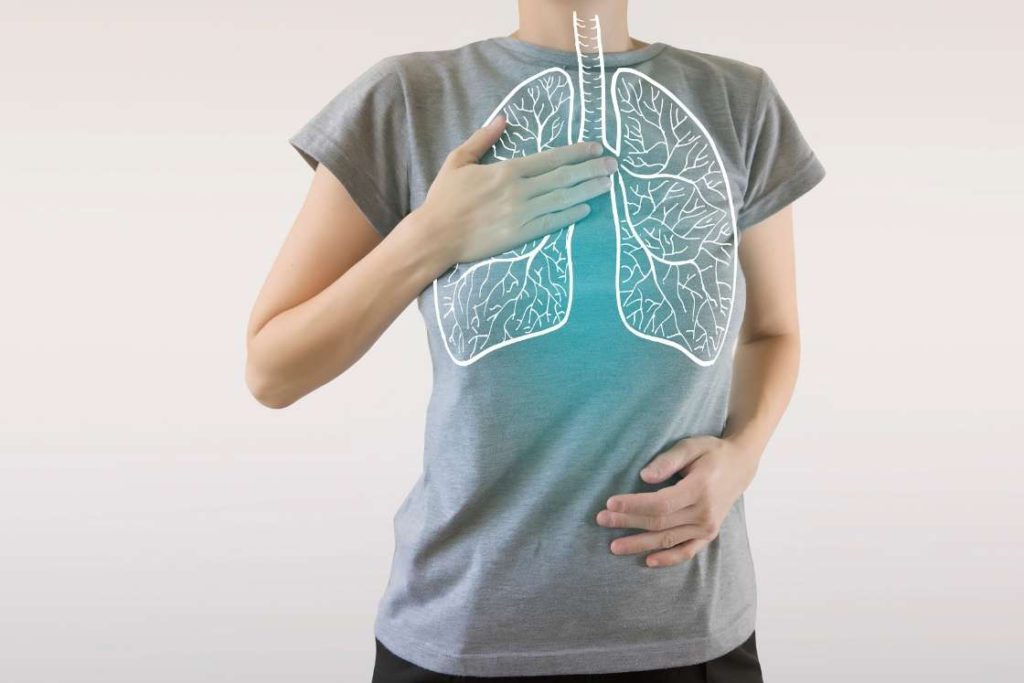
Pranayama has a direct affect on lung operate by rising chest wall enlargement and strengthening respiratory muscle groups. Quick respiratory strategies like Kapalbhati and Bhastrika improve respiratory endurance by repeatedly increasing and contracting the lungs.
Research from 2012 and 2014 present that common pranayama follow improves breath-holding time, important capability, respiratory charge, and each inspiratory and expiratory pressures. This implies the lungs are ready to attract in additional oxygen and launch extra carbon dioxide, making respiratory extra environment friendly.
Common follow of Suryabhedana, Nadishuddhi, Bhramari, and Kapalbhati for simply 5 to 7 minutes a day has proven notable advantages for folks with:
- Bronchial asthma
- Allergic bronchitis
- Publish-pneumonia and tuberculosis restoration
2. Act as a stress reliever
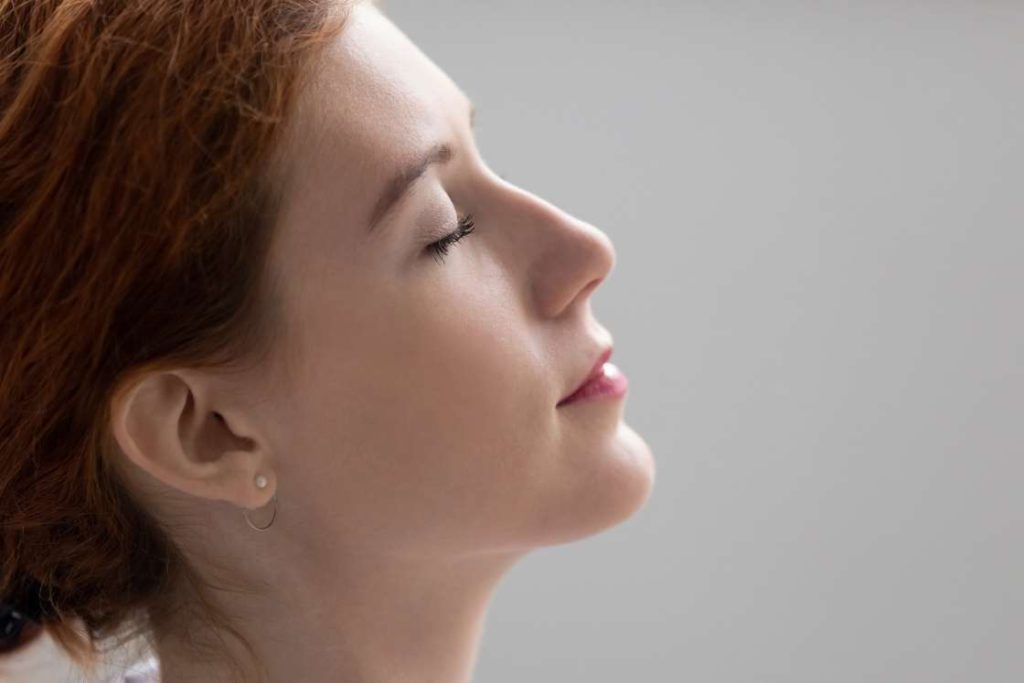
The way in which you breathe determines the stress response of your physique.
Pranayama can assist cut back stress to an excellent extent by altering irregular respiratory patterns.
Once we are beneath stress usually we take small breaths by elevating the shoulders and collarbone, often known as shallow or clavicular respiratory. Practising deep or sluggish pranayama respiratory brings the diaphragm into lively use to maneuver air out and in of the lungs.
Whereas doing the deep pranayama respiratory train of yoga, your sympathetic nervous system will get quiet – the a part of the nervous system which induces a stress response, and subsequently you are feeling much less stress and anxiousness very quickly. Pranayama additionally allows extra oxygen to stream into your physique and mind which helps calm your nerves and enhance important organ features.
When feeling anxious, you possibly can strive certainly one of these 5 pranayama respiratory workout routines. It’s going to trigger your physique to loosen up and launch a way of calm in your mind.
It has been proven in a 2013 research, each sluggish and quick pranayama respiratory workout routines are useful in lowering the perceived stress scale (PSS) in younger healthcare college students. Quick pranayama consists of Kapalabhati, Bhastrika and Kukkriya pranayama whereas sluggish pranayamas are Nadishodhana, Pranava and Savitri pranayama.
One other 2013 research exhibits pranayama follow can assist cut back anxiousness and enhance the efficiency of scholars in exams. The researchers mentioned that pranayama follow provides the physique with sufficient oxygen that cleanses the carbon dioxide and different toxins. When this cleansing course of takes place with respiratory, we cease feeling anxious and are ready to focus on the current second.
3. Improves focus
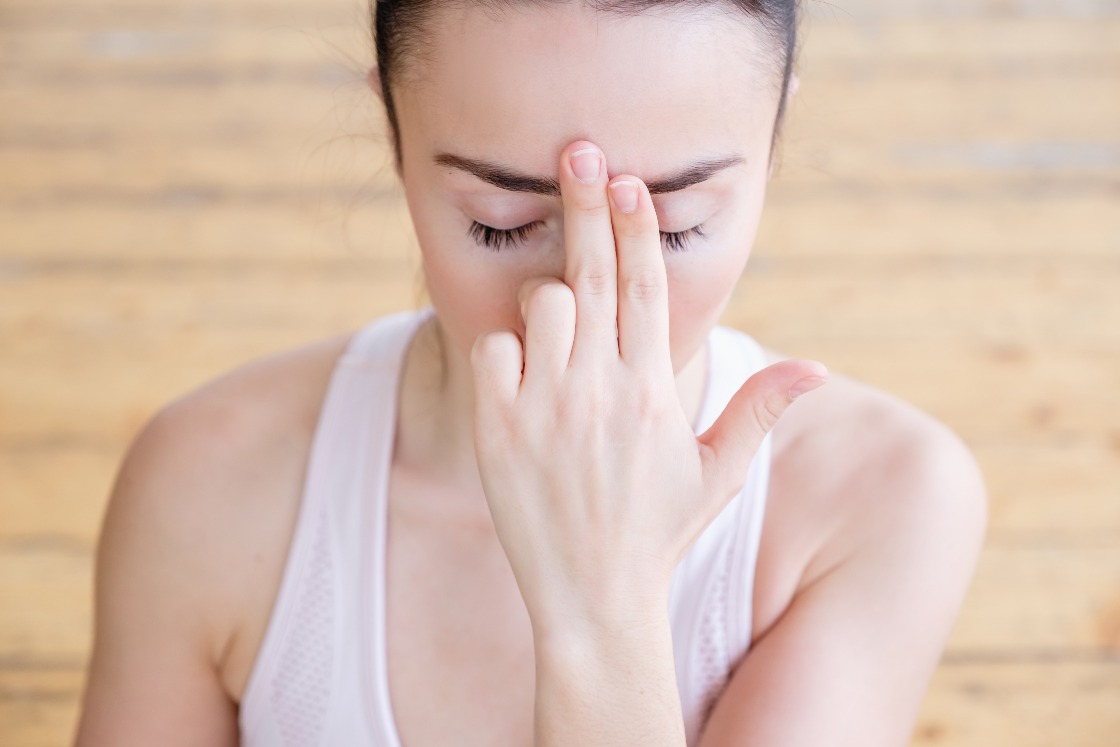
Decelerate, and take note of your breath. You may need heard this phrase in lots of yoga classes. That is mentioned to synchronize the thoughts with respiratory for higher focus.
Pranayama respiratory is likely one of the wonderful yoga workout routines to extend focus and sharpen reminiscence. Its meditative strategy of specializing in respiratory in numerous types and patterns circumstances the thoughts to reside within the current second. It additionally will increase mindfulness.
Practising pranayama stimulates the cerebral cortex and different important parts of the mind which play a key position in consideration, consciousness, thought, and consciousness. A 2017 research within the Journal of Neurophysiology exhibits that mind areas linked to emotion, consideration, and physique consciousness are activated after we take note of our breath.
A 2014 research exhibits practising Nadi Shodhan pranayama can considerably enhance focus in younger adults. Its causes, as mentioned within the research, are as follows:
- It clears the Nadis or, delicate power channels, eradicating the impurities of the physique
- It will increase parasympathetic exercise bettering psychological readability, alertness and bodily properly being
- Nadi shodhan improve oxygen provide. Elevated oxygen oxidizes waste impurities which implies much less want for the breath and a extra calm thoughts.
In line with a 2013 research within the Worldwide Journal of Healthcare & Biomedical Analysis, 12 weeks of pranayama coaching has considerably improved the focus energy in younger adults by way of response time. Pranayama follow decreased audio-visual response time which suggests elevated processing functionality of central nervous system and higher focus.
4. Boosts immune system
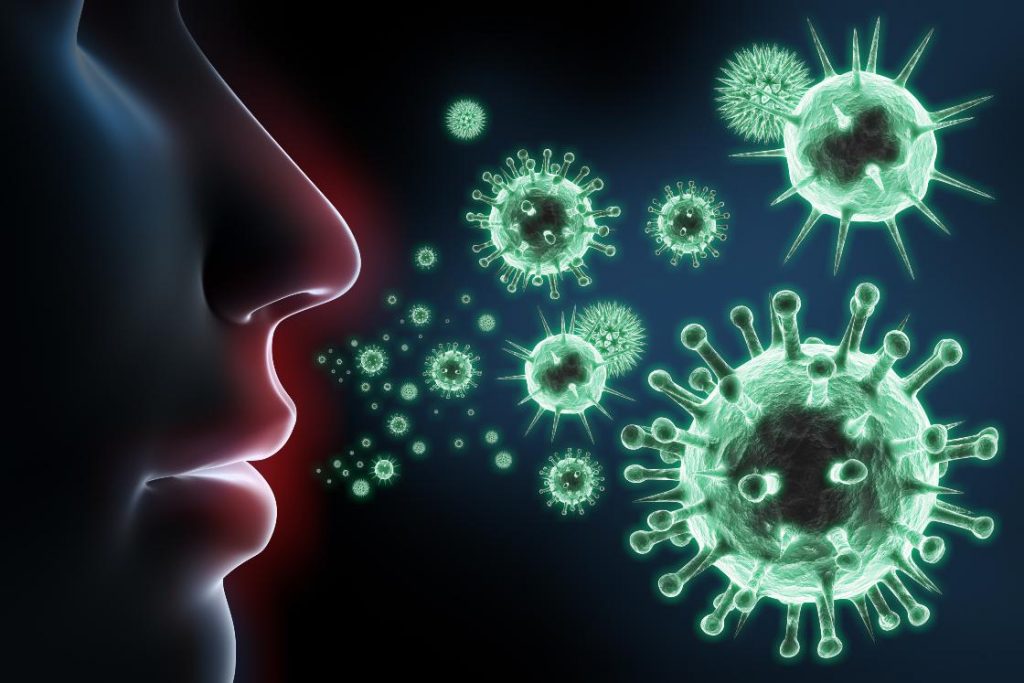
Pranayama is a holistic yoga follow to spice up immune system effectivity. It includes diaphragmatic respiratory workout routines which have interaction your entire digestive system that’s house to nearly 80% of immune tissue. On this method, practising deep pranayama respiratory can enhance the physique’s immune response.
The immune system’s means to supply resistance in opposition to an infection and toxins will get decreased after we are confused. Pranayama is efficient in lowering stress and subsequently boosts the immune system. Via pranayama, we develop every breath size to supply extra oxygen in our blood and thus it prompts the parasympathetic or ‘relaxation and digest’ nervous system.
A 2013 research mentioned that managed deep stomach respiratory could strengthen the physique’s defences by altering the gene expression of sure immune cells.
One other research exhibits that yogic respiratory workout routines which embody a acutely aware breath-retention half (referred to as Kumbhaka in Sanskrit) can do change in genetic exercise of white blood cells. Researchers present pranayama follow will increase the variety of white blood cells within the physique which is a part of the immune system that protects the physique from an infection.
5. Lowers hypertension
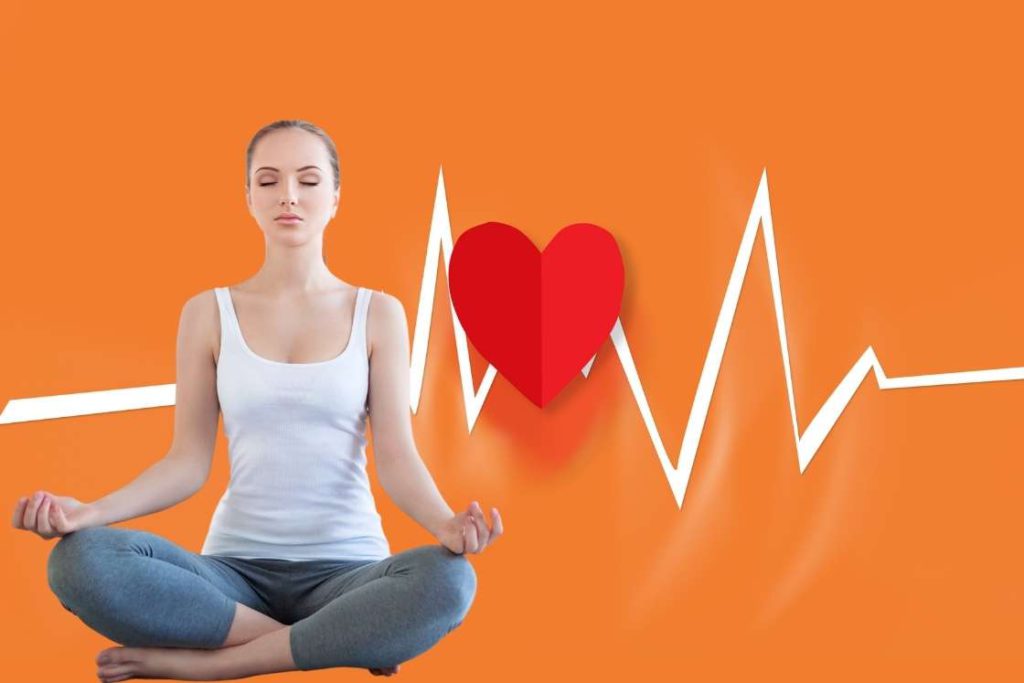
Sluggish and deep pranayamas can assist decrease hypertension or hypertension, even in sufferers with coronary heart illnesses.
Pranayamas talked about under produce a cooling and calming impact on the physique and thoughts thus lowering blood strain:
Once we do sluggish and deep pranayama workout routines like Anulom Vilom, it sends the mind a rest sign which in flip slows down the center charge. A lower within the coronary heart charge dilates blood vessels, lowering general blood strain.
In a 2009 research, sluggish tempo bhastrika pranayama (respiratory charge 6/min) has considerably decreased each the systolic and diastolic blood strain inside 5 minutes of follow. The research concludes this pranayama has a robust tendency to enhance the autonomic nervous system via enhanced activation of the parasympathetic system.
6. Improves digestion

Pranayama follow can help in digestion by rising the oxygen provide to the intestine. Extra oxygen provide to the intestine implies extra blood stream and higher intestinal energy which promote absorption and digestion of meals.
Once we follow sluggish diaphragmatic respiratory like dirgha pranayama or full yogic breath earlier than a meal (a minimum of 3 hours earlier than) it reduces pressure in digestive organs’ muscle groups and retains them lively for upcoming meals.
Furthermore, different advantages of pranayama like lowering general stress, boosting the immune system and bettering the standard of sleep combinedly assist the digestive system work successfully.
Common pranayama follow can even show you how to with the administration of persistent circumstances like irritable bowel syndrome (IBS) and gastroesophageal reflux illness (GRD).
In a 2012 research researchers present that pranayama follow can assist regulate the secretion of gastric acid and digestive enzymes. Pranayama additionally promotes the elimination a part of the digestion course of by eliminating delicate metabolic wastes from the physique via respiratory.
7. Helps in weight reduction
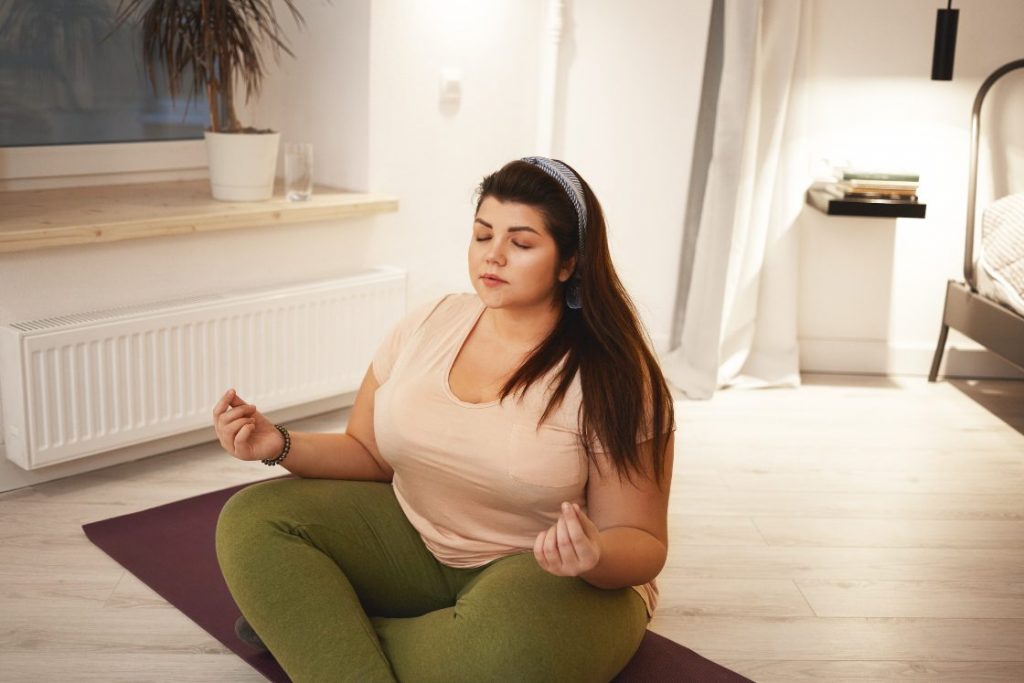
Quick pranayama respiratory workout routines like kapalbhati and bhastrika will be fairly useful in shedding stomach fats. It includes fast stroke of the stomach wall out and in with inhales and exhales. This course of permits the physique to exhale extra CO2 and pumps oxygen via physique cells.
In weight reduction via pranayama workout routines, many of the mass is breathed out as carbon dioxide from the physique through the lungs. Furthermore, elevated oxygen provide enhance metabolism which in flip helps in burning the stomach fats deposited in your physique.
A research printed within the Worldwide Journal of Yoga, Physiotherapy and Bodily Schooling means that the common and guided follow of pranayama is efficient in weight reduction. The results of the research means that on practising pranayama for six weeks, there was a major lower within the Physique Mass Index (BMI) and Waist-Hip ratio of individuals.
8. Promotes higher sleep
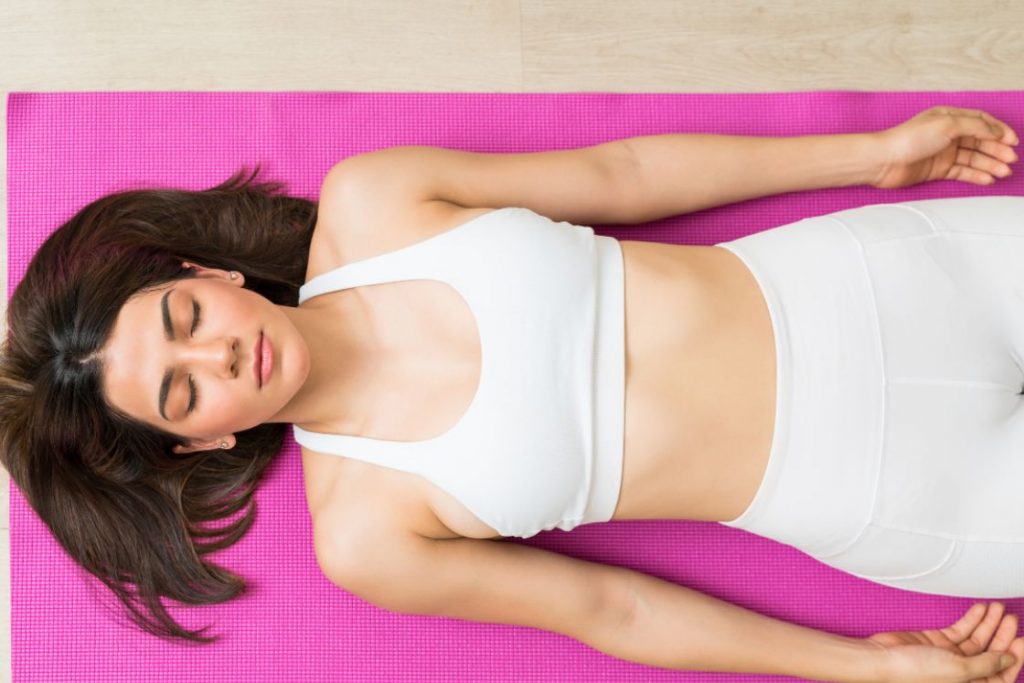
Pranayama respiratory helps decelerate the center charge by activating the parasympathetic nervous system. It brings a calming impact on the physique and thoughts which in flip promotes higher sleep.
A 2019 research in European Respiratory Journal means that pranayama workout routines can considerably lower loud night breathing and daytime sleepiness. It additionally improves the standard of sleep in folks affected by obstructive sleep apnea syndrome (OSAS).
In line with a research, sluggish tempo respiratory pranayamas earlier than going to mattress prepares the physique and thoughts for higher sleep. It has an instantaneous impact on decreasing blood strain and coronary heart charge. Furthermore, it helps clear the thoughts from office negativity, pressure, anxiousness or emotional blockages that will prohibit your sleep on time.
Pranayama at evening ought to solely be completed a minimum of 2 hours after having a meal. Begin with 5 minutes of practise of deep stomach respiratory, additionally referred to as Dirgha pranayama. It may be practised laying down on the mattress. Place certainly one of your arms in your abdomen and one in Gyan mudra. With hand to abdomen, really feel the stomach wall increasing and contracting with inhale and exhale.
Then do bhramari pranayama for five minutes sitting comfortably in a cross-legged posture.
Take an extended inhalation via the nostril, and on the exhalation create a buzzing sound from the throat. Preserve inhalation and exhalation regular and sluggish. On the inhale, shut your eyes and breathe via the nostril; on the exhale shut off the ears with the index fingers, maintaining the eyes closed and make a buzzing sound with the voice.
9. Helps clear sinus congestion
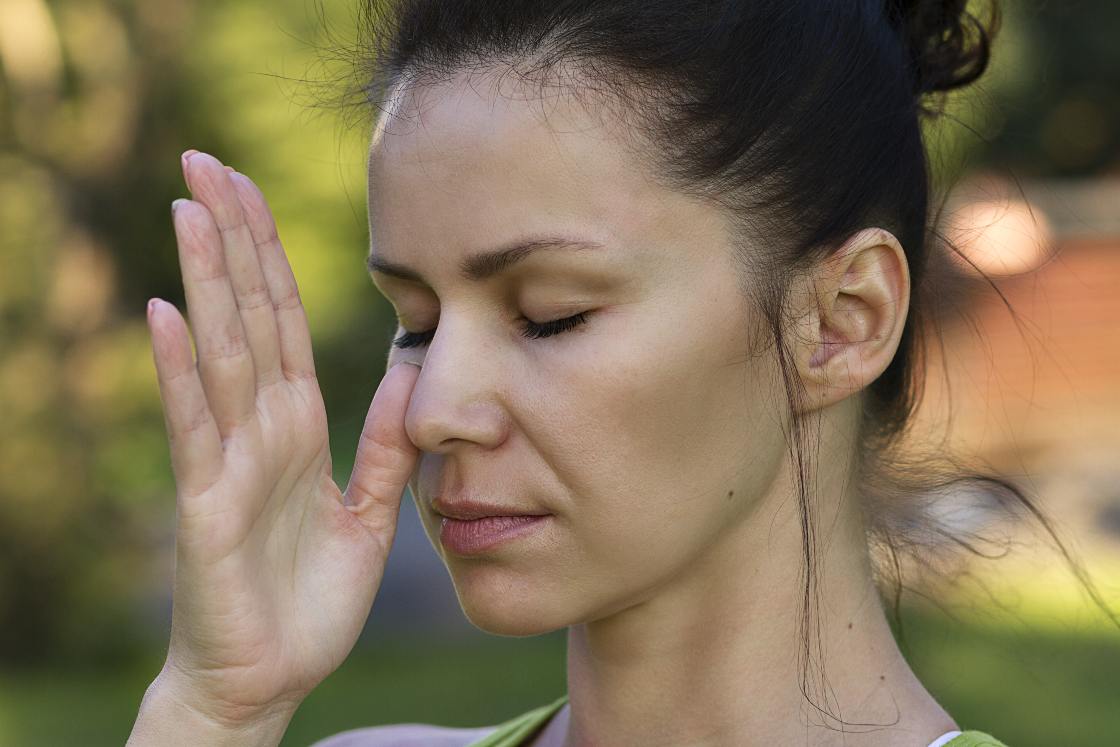
Pranayama like alternate nostril respiratory helps to clear the blockages within the nasal cavity. Common follow of it may well preserve nostrils freed from allergy symptoms and improve the filtering capability towards the overseas factor lowering irritation.
The irritation within the sinuses may cause throbbing complications, nasal congestion, and operating noses. Pranayama not solely improves the air flow but additionally acts on the right drainage of the sinuses and in flip relieves the signs of sinusitis.
In line with a research in Indian Journal of Otolaryngology and Head & Neck Surgical procedure, Nasal respiratory workout routines of yoga present anti-inflammatory results and cut back signs of Allergic Rhinitis.
One other research reported that practising neti, a yoga cleaning kriya, after respiratory workout routines will be an efficient technique to scale back signs of allergic rhinitis. Jala neti kriya includes the use of a neti pot as a tool for nasal irrigation to alleviate the signs of sinusitis.
Pranayama strategies work for the sinus as a result of it promotes balanced respiratory via the nostril which inspires the nasal passages to widen. In distinction to mouth respiratory (that we regularly do unconsciously) nasal respiratory workout routines forestall mucus manufacturing and preserve your airways free.
The buzzing sound of Bhramari pranayama acts as a sonic cleanser, a research within the Worldwide Journal of Yoga exhibits. It creates vibration within the air to maneuver forwards and backwards between the sinuses and nasal passages. This mechanism permits the clogged sinuses to ventilate and drain correctly.
10. Helps to get glowing pores and skin
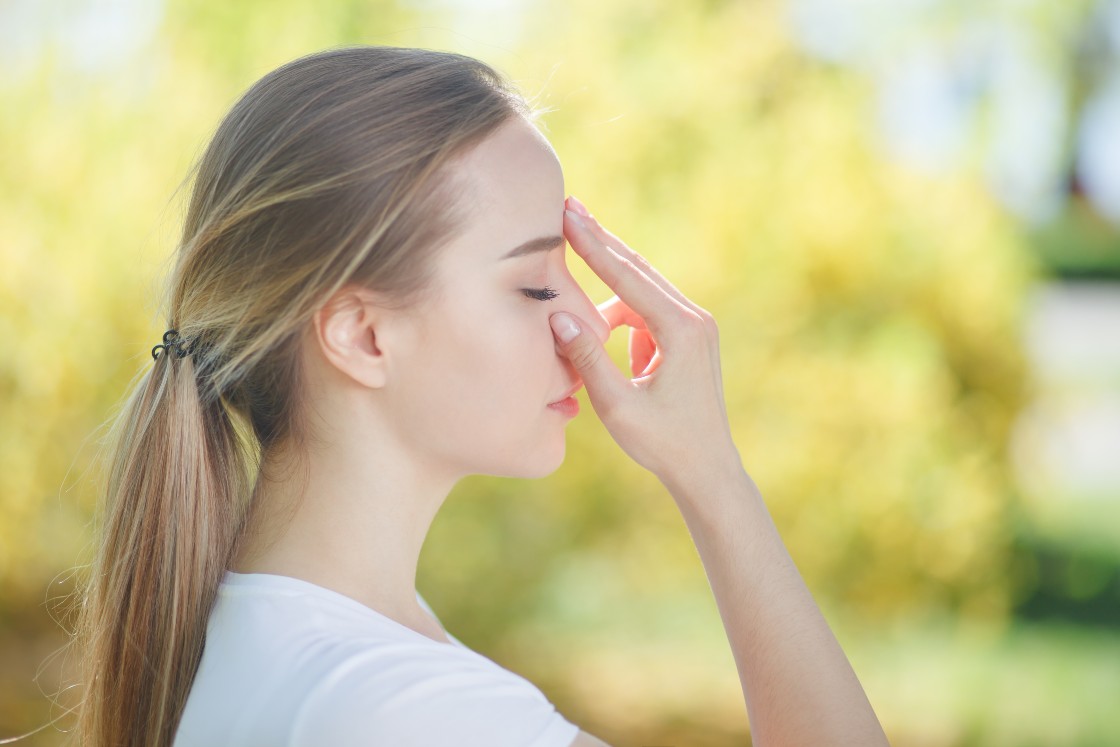
Pranayama is usually a great train to get glowing pores and skin.
In line with the classical yoga textual content Hatha Yoga Pradipika, Pranayama is taken into account to be a purification method for our physique at many ranges and layers.
Pores and skin, the outermost layer in our physique, wants oxygen to keep up its radiant glow and pores and skin cells take this oxygen from the lungs. Practising sluggish and deep pranayamas permits the lungs to flush extra carbon dioxide from our physique and replaces it with a wealthy provide of cell-energising oxygen. It could possibly additional oxygenate pores and skin cells by incorporating physique locks or bandhas and mudras in pranayama follow.
This technique of oxygenation via pranayama promotes elevated moisture within the pores and skin and reduces the looks of traces, wrinkles and different ageing signs. It additionally detoxifies the blood in our physique which regularly is taken into account the reason for numerous pores and skin illnesses.
Yoga respiratory strategies like Bhramari Pranayama and Bhastrika pranayama has optimistic results on the facial pores and skin. Bhramari pranayama with shanmukhi mudra and Jalandhar bandha (throat lock) is very useful to provide ample oxygen to physique cells, thus it glows the pores and skin.
A 2013 research within the Indian Journal of Medical Analysis exhibits that as brief as 7 days of normal pranayama follow can have a major affect on pores and skin well being. There was a rise noticed within the GSR (galvanic pores and skin resistance) studying in individuals doing common pranayama. GSR is the measure {of electrical} exercise within the pores and skin which correspondence to the moisture degree within the physique.
11. Improves mind features

Pranayama together with the mixed follow of yoga asanas and meditation will increase general mind wave exercise, gray matter quantity within the amygdala and prompts the frontal cortex. It additionally contributes to bettering reminiscence which has been seen in a research influencing the tutorial efficiency of the scholars.
Breath management or pranayama follow enhances the filtering capability of the mind. It will increase the passage of nanoparticles to the mind via the Blood-Mind Barrier and filters the undesirable poisonous supplies which we regularly inhale within the polluted atmosphere.
Researchers in a research recommend uninostril yoga respiratory similar to Surya bhedana pranayama or proper nostril respiratory will increase oxygenation and blood quantity within the left a part of the mind. It will increase the prana power within the physique, the effectivity of the digestive system, and prompts the sympathetic nervous system.
From this, it may be assumed practising reverse uninostril yoga respiratory similar to Chandra bhedna pranayama will have an effect on the features of the fitting a part of the mind.
12. Helps develop spiritually
Breath management or pranayama is likely one of the important parts of religious upliftment journey.
Nevertheless, you possibly can observe completely different bodily or psychological advantages from practising pranayama, the principle purpose of its follow is to manage the breath and thru breath management, put together the thoughts for meditation and samadhi.
A yogi can obtain larger phases of samadhi solely when the breath turns into easy. Patanjali in Yoga Sutras explains pranayama makes the thoughts match for Samyama – the mixed follow of focus (dharna), meditation (dhyana) and samadhi.
Pranayama via breath regulation helps you to achieve management over your physique and thoughts. It promotes mindfulness, helps you be bodily lively, and cleanses all impurities and blockages via Nadis in our physique. All of it results in bettering your psychological well being as properly.
Spiritually pranayama advantages will be noticed within the type of:
- A way of interior bliss
- Elevated mindfulness
- Much less thoughts chatter and readability in ideas
- Really feel related together with your inner-self
- Vairagya (detachment) feeling
FAQs
Usually 10 to fifteen minutes of pranayama follow every day is sufficient to reap all its advantages. One ought to begin with 20 minutes of asanas follow then do quick pranayama respiratory like Kapalbhati, bhastrika after which finish the session with anulom vilom or Nadi shodhan.
Pranayama will increase the oxygen provide to the mind and prompts mind centres which occur in a dormant state beneath regular circumstances. It will increase focus energy, emotion processing, consideration, and consciousness.
Primarily there are 8 classical pranayamas, often known as Kumbhaka, talked about within the classical yoga textual content Hatha Yoga Pradipika. Nevertheless, right this moment we follow greater than 14 varieties of pranayamas in yoga.
Pranayama, like some other yoga follow, is finest completed within the early morning earlier than dawn throughout Brahma Muhurta. It will also be practised within the night at daybreak, supplied empty abdomen or 3 hours after a meal.

